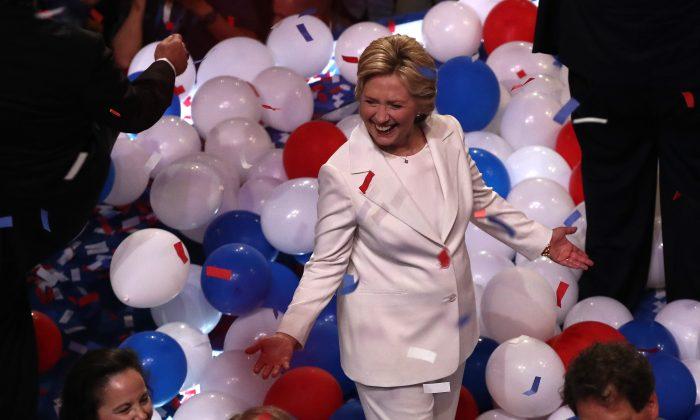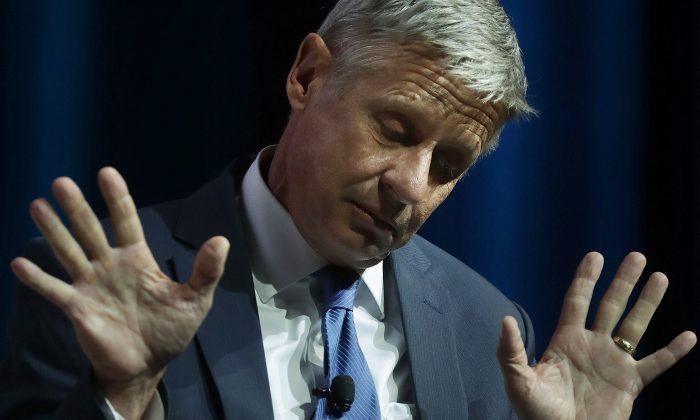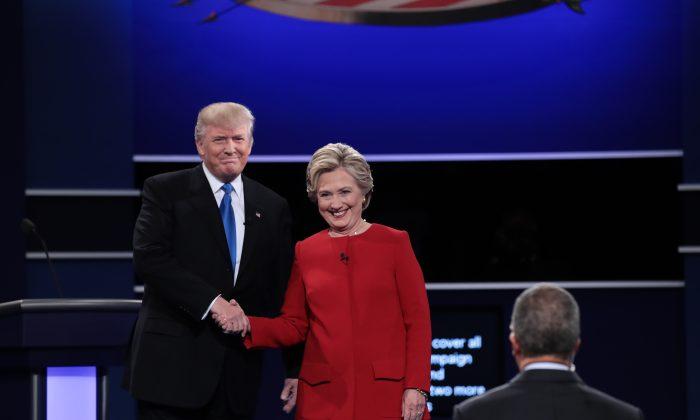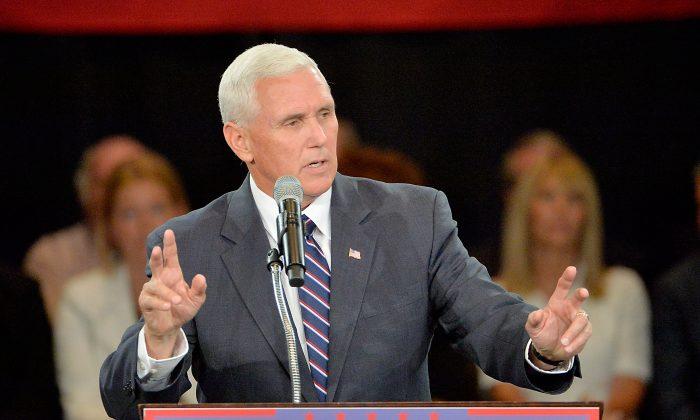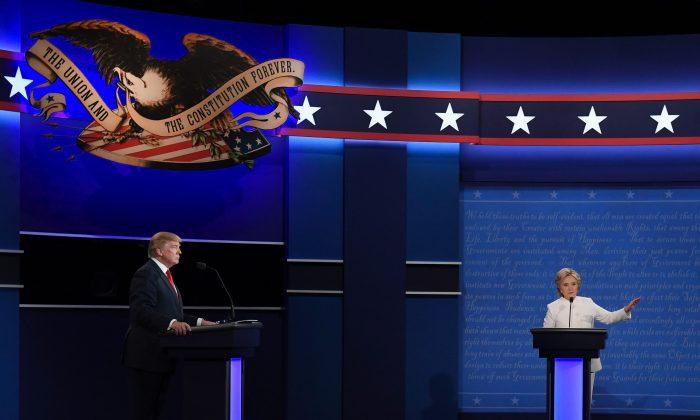Republican candidate Donald Trump’s campaign slogan “Make America Great Again” has allowed the Democratic Party and its candidate Hillary Clinton to explore themes that have been relatively absent in the party from the last couple presidential cycles: overt patriotism and American exceptionalism.
The Democratic party has been, since George W. Bush’s presidency, the party to downplay patriotic rhetoric, especially following the invasion of Iraq. President Obama’s early opposition to the Iraq War helped him stand out as a candidate during the outset of the 2008 primary season, and it colored his acceptance speech and the rest of his general election.
John McCain—who supported the Iraq invasion and subsequent surge—approached American exceptionalism and patriotism as a response to an existential threat following 9/11, and called on patriots to help the country work towards “prosperity and peace.”
“And after we’ve won [the 2008 Election], we’re going to reach out our hand to any willing patriot, make this government start working for you again, and get this country back on the road to prosperity and peace,” McCain said in his 2008 acceptance speech.
In other places in the speech he spoke about patriotism and love of America in terms of love of God, which followed the same type of rhetoric as the sitting, yet unpopular, President George W. Bush.
Clinton also made a case for patriotism in her speech, but flipped the Republican’s script by employing patriotism in a way that championed America’s “most enduring values”—values that she framed as being threatened by Donald Trump’s candidacy.
“We have the most powerful military, the most innovative entrepreneurs, the most enduring values: freedom and equality, justice and opportunity,” Clinton said in her acceptance speech at the Democratic National Convention. “We should be so proud that these words are associated with us. That when people hear them, they hear America.”
The speech particularly attacked Trump’s quote from his acceptance speech, where he said that he knew the system and then said “I alone can fix it,” a quote that was oft-quoted throughout the days of the Democratic convention.
“I alone can fix it? Clinton asked the audience rhetorically. ”Isn’t he forgetting troops on the front lines, police officers and fire fighters who run toward danger, doctors and nurses who care for us...he’s forgetting every last one of us,” she said before concluding with one of her campaign slogans.
“Americans don’t say, ”I alone can fix it.“ We say, ”We'll fix it together.”
